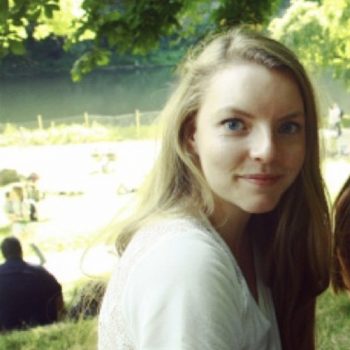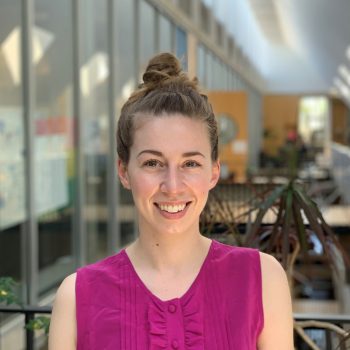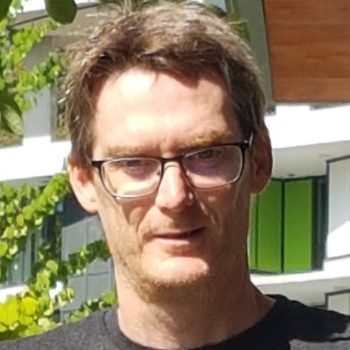Featured Publications
Shepon A, T Wu, C Kremen, T Dayan, I Perfecto, J Fanzo, G Eshel, C D Golden, 2023, Exploring scenarios for the food system–zoonotic risk interface, The Lancet Planetary Health, 7:4, e329-e335, https://doi.org/10.1016/S2542-5196(23)00007-4
Blesh, J., Mehrabi, Z., Wittman, H., Kerr, R. B., James, D., Madsen, S., Smith, O. M., Snapp, S., Stratton, A. E., Bakarr, M., Bicksler, A. J., Galt, R., Garibaldi, L. A., Gemmill-herren, B., Grass, I., Isaac, M. E., John, I., Jones, S. K., Kennedy, C. M., Kremen, C. (2023). Against the odds : Network and institutional pathways enabling agricultural diversification. One Earth, 1–13. https://doi.org/10.1016/j.oneear.2023.03.004
Kremen C. and I. Geladi, 2023, Land-Sparing and Sharing: Identifying Areas of Consensus, Remaining Debate and Alternatives, Reference Module in Life Sciences, Elsevier, https://doi.org/10.1016/B978-0-12-822562-2.00072-4.
Garcia K., E M. Olimpi, L M’Gonigle, D S. Karp, E E. Wilson-Rankin, C Kremen, D J. Gonthier, 2023, Semi-natural habitats on organic strawberry farms and in surrounding landscapes promote bird biodiversity and pest control potential, Agriculture, Ecosystems & Environment, 347:108353, https://doi.org/10.1016/j.agee.2023.108353.
Sargent, R. D., J. Carrillo, C. Kremen, Common pesticides disrupt critical ecological interactions, 2023, Trends in Ecology & Evolution, 38(3), 207-210, https://doi.org/10.1016/j.tree.2022.12.002.
DeClerck, F.A.J., I Koziell, T Benton, L A. Garibaldi, C Kremen, M Maron, C Rumbaitis Del Rio, A Sidhu, J Wirths, M Clark, C Dickens, N Estrada Carmona, A K. Fremier, S K. Jones, C K. Khoury, R Lal, M Obersteiner, Roseline Remans, Adrien Rusch, Lisa A. Schulte, J Simmonds, L C. Stringer, C Weber & L Winowiecki (2023). A Whole Earth Approach to Nature-Positive Food: Biodiversity and Agriculture. In: von Braun, J., Afsana, K., Fresco, L.O., Hassan, M.H.A. (eds) Science and Innovations for Food Systems Transformation. Springer, Cham. https://doi.org/10.1007/978-3-031-15703-5_25
Carlisle L., K. Esquivel, P. Baur, N. F. Ichikawa, E. M. Olimpie, J. Ory, H. Waterhouse, A. Iles, D. S. Karp, C. Kremen, and T. M. Bowles (2022). Organic farmers face persistent barriers to adopting diversification practices in California’s Central Coast. Agroecology and Sustainable Food Systems, 1-28. PDF
Karandikar, H., M. W. Serota, W. C. Sherman, J. R. Green, G. Verta, C. Kremen, A D. Middleton. (2022). Dietary patterns of a versatile large carnivore, the puma (Puma concolor). Evolution and Ecology. 1-11. 12:e9002. PDF
Sciligo, A. R., M’Gonigle, L. K., Kremen, C. (2022). Local diversification enhances pollinator visitation to strawberry and may improve pollination and marketability. Frontiers in Sustainable Food Systems, 01–11. PDF
Beckett, K., Elle, E., Kremen, C., Sherwood, A., McComb, S. & Martin, T.G. 2022. Hyperabundant black-tailed deer impact endangered Garry oak ecosystem floral and bumblebee communities. Global Ecology and Conservation: e02237. PDF
Liebert, J., Benner, R., Bezner Kerr, R. et al. Farm size affects the use of agroecological practices on organic farms in the United States. Nat. Plants (2022). PDF
Ward, L. T., Hladik, M. L., Guzman, A., Winsemius, S., Bautista, A., Kremen, C., & Mills, N. J. (2022). Pesticide exposure of wild bees and honey bees foraging from field border flowers in intensively managed agriculture areas. Science of The Total Environment, 831, 154697. PDF
Brennan, A., Naidoo, R., Greenstreet, L., Mehrabi, Z., Ramankutty, N., & Kremen, C. (2022). Functional connectivity of the world’s protected areas. Science, 376(6597), 1101-1104. PDF. This is the author’s version of the work. It is posted here by permission of the AAAS for personal use, not for redistribution. The definitive version was published in Science on vol. 376, 3 June 2022, DOI: 10.1126/science.abl8974
Olimpi, E. M., Garcia, K., Gonthier, D. J., Kremen, C., Snyder, W. E., Wilson‐Rankin, E. E., & Karp, D. S. (2022). Semi‐natural habitat surrounding farms promotes multifunctionality in avian ecosystem services. Journal of Applied Ecology, 59(4), 898-908. PDF
Chapman, M., Wiltshire, S., Baur, P., Bowles, T., Carlisle, L., Castillo, F., Esquivel, K., Gennet, S., Iles, A., Karp, D., Kremen, C., Liebert, J., Olimpi, E. M., Ory, J., Ryan, M., Sciligo, A., Thompson, J., Waterhouse, H., Boettiger, C. (2022). Social-ecological feedbacks drive tipping points in farming system diversification. One Earth, 5(3), 283-292. PDF
Allen-Perkins, Alfonso, Magrach, Ainhoa, Dainese, Matteo, Garibaldi, Lucas A., Kleijn, David, Rader, Romina, Reilly, James R., et al. 2022. “ CropPol: A Dynamic, Open and Global Database on Crop Pollination.” Ecology 103( 3): e3614. PDF
Olimpi, E. M., Daly, H., Garcia, K., Glynn, V. M., Gonthier, D. J., Kremen, C., M’Gonigle, L. K., & Karp, D. S. (2022). Interactive effects of multiscale diversification practices on farmland bird stress. Conservation Biology, 00, e13902. PDF
Lu, A., Gonthier, D. J., Sciligo, A. R., Garcia, K., Chiba, T., Juárez, G., & Kremen, C. (2022). Changes in arthropod communities mediate the effects of landscape composition and farm management on pest control ecosystem services in organically managed strawberry crops. Journal of Applied Ecology, 59, 585– 597. PDF
Khelifa, R., Mellal, M. K., Mahdjoub, H., Hasanah, N., & Kremen, C. (2022). Biodiversity Exploitation for Online Entertainment. Frontiers in Conservation Science, 2. PDF
Wu JS-T, Hauert C, Kremen C and Zhao J (2022) A Framework on Polarization, Cognitive Inflexibility, and Rigid Cognitive Specialization. Front. Psychol. 13:776891. PDF









